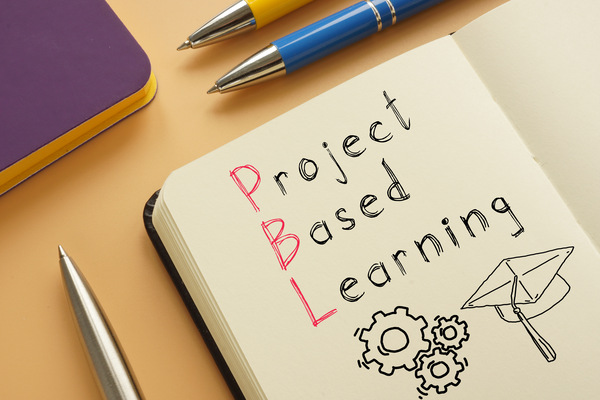What Should You Look For In A Swim Coach?
Do you want to join swimming classes? Or looking to enroll your child in swimming lessons? No doubt you would be seeking the best swim coach for better training. Quick online research can help you out in finding a private swimming instructor in your region. But still, there are some qualities that a good swimming coach should have.
Not sure which qualities to look for?
Well, below in this article, we have mentioned the top 8 best qualities that will help you find your next coach. Read on!
8 Qualities To Look When Finding A Swimming Instructor Should Have
For many reasons, learning how to swim is beneficial for children and adults alike. Even if an individual has basic swimming skills, it never improve those skills are important and can even be life saving. Now, let’s have a look over the important features a good swimming coach should have.
1. Experience
Years of experience may look like a basic and common feature, but this is the most important thing when learning from a coach. Adults or children require a set of skills to learn swimming. But young children need a different way of teaching while adults require something different.
So your instructor should be well-trained in their field. It’s true that one coach can’t train both adults and children. Hence, when you are finding a swimming instructor, make sure you cross-check their specialty and experience (with adults or children).
Choosing an experienced coach is helpful for the students because there would be more chances of learning better.
2. Qualifications
Now, let’s head towards the most important thing that is certifications and qualifications of the swimming coach you are choosing.
If someone has recommended a male or a female swimming instructor to you, then start with their certificates. Ask them to show you genuine qualification certificates. If someone is a great swimmer, it doesn’t mean they would be a good instructor also.
A well-trained and certified swimmer knows what the best techniques to teach swimming are. Also, they work according to ethics and use their knowledge as a strong teaching point.
Ask them to show;
- Swimming certificate (from authorized institute)
- Graduation or post graduation degree in swimming (any of them)
- Experience of training students
3. Focused
Swimming skills need high focus from students as well as the instructor. And, you know it’s an underwater activity, so coaches need to be extra attentive and dedicatedly focused on students. Small negligence may lead to a major mishap in the pool.
So, when you schedule a meeting with a private swimming instructor, ensure you check whether they are focused or not. It’s important for the instructor to engage themselves on every lap of the swimmer while practicing.
Also, for an instructor it’s easier to focus on students in an indoor swimming pool rather than an outdoor pool. It is because the indoor pools save students as well as coaches from harsh weather conditions.
Coaches instruct students as well as guide them on their mistakes, so they should be highly focused on every step. Furthermore, swimming becomes much easier when the instructor concentrates on the students.
4. Sharp Observers
Mostly, the best coaches are the finest observers of their students. And this quality helps to enhance the swimming skills of swimmers. It is because the more they point out mistakes the better would be the chances to learn faster.
The private swimming instructor is a better choice if you want them to stay focused only on you. There is no disturbance, and all the concentration of the coach would be on a single student. Moreover, ask your coach to feel free to interrupt when they find something wrong.
5. Confident
Confidence is the key to success!
A swimmer won’t be able to approach the blocks if their trainer is not confident. A coach shouldn’t just look convinced but also feel the same when teaching swimming.
Furthermore, a swimming instructor’s confidence is readily absorbed by a learner. The best swimming coaches know how to meet the requirements of their students and make them feel confident.
6. Encourage Students
Learning any new skill is a tough task that requires appreciation by the coach, not sympathy. So, make sure you meet the previous students of the private swimming instructor that you have chosen.
It will help you to know the teaching method of the coach. A learner needs comfort as well as a decided goal to learn swimming.
There will be a time when students will feel pain while practicing, but the coach needs to be strong enough to encourage them rather than feel pity. Sympathy leads to failure, while appreciation is a primary step towards success. This can be especially true during swimming lessons for children with special needs.
7. Market reputation
Words of mouth do not help to learn swimming, but expertise does.
So how can you confirm that the private swimming instructor you have chosen is the right one?
The solution is here!
Check out the Instagram account, Facebook page/account, and Google reviews to find out about the swimming coach.
Moreover, you can ask your colleagues, friends, or relatives. There are more possibilities that you would get a good recommendation from your peers.
8. Reliable
When you are looking for a swimming instructor, reliability is also an important feature. If a trainer is not punctual and doesn’t teach the way you want, then it becomes hard to trust them.
There are a few qualities that your trainer should have:
- They should not cancel the last-minute lessons until the absolute emergency situations.
- The swimming instructor must be available a few minutes before class time.
- They should start and finish the swimming lessons on time so that they can start the next swimming class on time.
- Good at listening to questions and answering them.
- Act responsibly with kids as well as with their parents.
- The coach must be capable of answering queries related to cancellations and delays in classes.
Conclusion
Swimming is a basic life-saving skill that everyone should learn. So, are you ready to enroll your kid or yourself in the swimming class? Whether you choose a male or female swimming instructor make sure they have the above listed qualities.
Well, we hope this article has helped you understand the most important traits to look for when finding an instructor. Furthermore, choosing a good coach is a major step to learn swimming better and more easily. Hopefully, you will find the best swimming coach in your town. All the best.
Read how to support your child in sport selection so that they possess the long term passion needed to excel.




 Photo by
Photo by  Photo by
Photo by  Photo by
Photo by  Photo by
Photo by 
 Photo by
Photo by 




